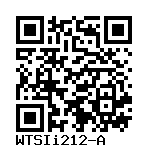HPSI0613i-auim_2
WTSIi212-A
General
Cell Line |
|
| hPSCreg name | WTSIi212-A |
| Cite as: | WTSIi212-A (RRID:CVCL_AF90) |
| Alternative name(s) |
HPSI0613i-auim_2
|
| Cell line type | Human induced pluripotent stem cell (hiPSC) |
| Similar lines |
WTSIi212-B (HPSI0613i-auim_3) |
| Last update | 22nd May 2019 |
| User feedback | |
Provider |
|
| Generator | Wellcome Sanger Institute (WTSI) |
External Databases |
|
| HipSci | HPSI0613i-auim_2 |
| BioSamples | SAMEA2398656 |
| Cellosaurus | CVCL_AF90 |
| Wikidata | Q54890997 |
General Information |
|
| Publications |
|
| Projects | |
| * Is the cell line readily obtainable for third parties? |
Yes Research use: allowed
Clinical use: not allowed
Commercial use: not allowed
|
Donor Information
General Donor Information |
|
| Sex | female |
Phenotype and Disease related information (Donor) |
|
| Diseases | No disease was diagnosed.
|
Donor Relations |
|
| Other cell lines of this donor | |
External Databases (Donor) |
|
| BioSamples | SAMEA2398814 |
Ethics
| Has informed consent been obtained from the donor of the embryo/tissue from which the pluripotent stem cells have been derived? | Yes |
| Was the consent voluntarily given? | Yes |
| Has the donor been informed that participation will not directly influence their personal treatment? | Yes |
| Can you provide us with a copy of the Donor Information Sheet provided to the donor? | Yes |
| Do you (Depositor/Provider) hold the original Donor Consent Form? | No |
| If you do not hold the Donor Consent Form, do you know who does? | No |
| Alternatives to consent | |
| Alternative consent approval number | |
| Is there other documentation provided to the donor for consenting purposes? | Yes |
| Please indicate whether the data associated with the donated material has been pseudonymised or anonymised. | anonymised |
| Does consent explicitly allow the derivation of pluripotent stem cells? | Yes |
| * Does consent expressly prevent the derivation of pluripotent stem cells? | No |
| Details on restriction to research project | |
| Does consent prevent CELLS DERIVED FROM THE DONATED BIOSAMPLE from being made available to researchers anywhere in the world? | No |
| How may genetic information associated with the cell line be accessed? | |
| Will the donor expect to receive financial benefit, beyond reasonable expenses, in return for donating the biosample? | No |
| Please describe how access is provided: | |
| Contact data, institution, or website: | |
| Has a favourable opinion been obtained from a research ethics committee, or other ethics review panel, in relation to the Research Protocol including the consent provisions? | Yes |
| Name of accrediting authority involved? | East of England- Cambridge Central Research Ethics Committee. |
| Approval number | |
| Has a favourable opinion been obtained from a research ethics committee, or other ethics review panel, in relation to the PROPOSED PROJECT, involving use of donated embryo/tissue or derived cells? | No |
| Name of accrediting authority involved? | |
| Approval number | |
| Please describe: | |
| Further constraints on use | |
| For generation of the cell line, who was the supplier of any recombined DNA vectors or commercial kits used? | |
| Constraints for use or distribution |
hIPSC Derivation
General |
|
| Source cell type |
A connective tissue cell which secretes an extracellular matrix rich in collagen and other macromolecules. Flattened and irregular in outline with branching processes; appear fusiform or spindle-shaped.; These cells may be vimentin-positive, fibronectin-positive, fsp1-positive, MMP-1-positive, collagen I-positive, collagen III-positive, and alpha-SMA-negative.
|
| Source cell origin |
Any portion of the organ that covers that body and consists of a layer of epidermis and a layer of dermis.
Synonyms
|
| Source cell line vendor | Cambridge BioResource |
Reprogramming method |
|
| Vector type | Non-integrating |
| Vector | Sendai virus |
| Notes on reprogramming vector detection | CytoTune 1 |
Vector free reprogramming |
|
Other |
|
| Derived under xeno-free conditions |
Unknown |
| Derived under GMP? |
Unknown |
| Available as clinical grade? |
Unknown |
Culture Conditions
| Feeder cells |
Mouse embryo fibroblast (MEF) feeder cells |
| Passage method |
Enzymatically
Collagenase and Dispase
|
| CO2 Concentration | 5 % |
| Medium |
Other medium:
Base medium:
Main protein source: Knock-out serum replacement |
Characterisation
Analysis of Undifferentiated Cells
| Pluripotency Score | Novelty Score | |
| 34.046 | 1.366 |
Report
Certificate of Analysis |
|
| Is there a certificate of analysis available? |
Yes
Passage:
31
|
Genotyping
Karyotyping (Cell Line) |
|
| Has the cell line karyotype been analysed? |
No
|
Other Genotyping (Cell Line) |
|
| Is there genome-wide genotyping or functional data available? |
Yes
cnv
http://www.hipsci.org/lines/#/lines/HPSI0613i-auim_2 Number of regions different from primary tissue: 0; Length of differences from primary tissue: 0
Methylation profiling
https://ega-archive.org/datasets/EGAD00010001139 Text file with probe intensities |


Login to share your feedback, experiences or results with the research community.